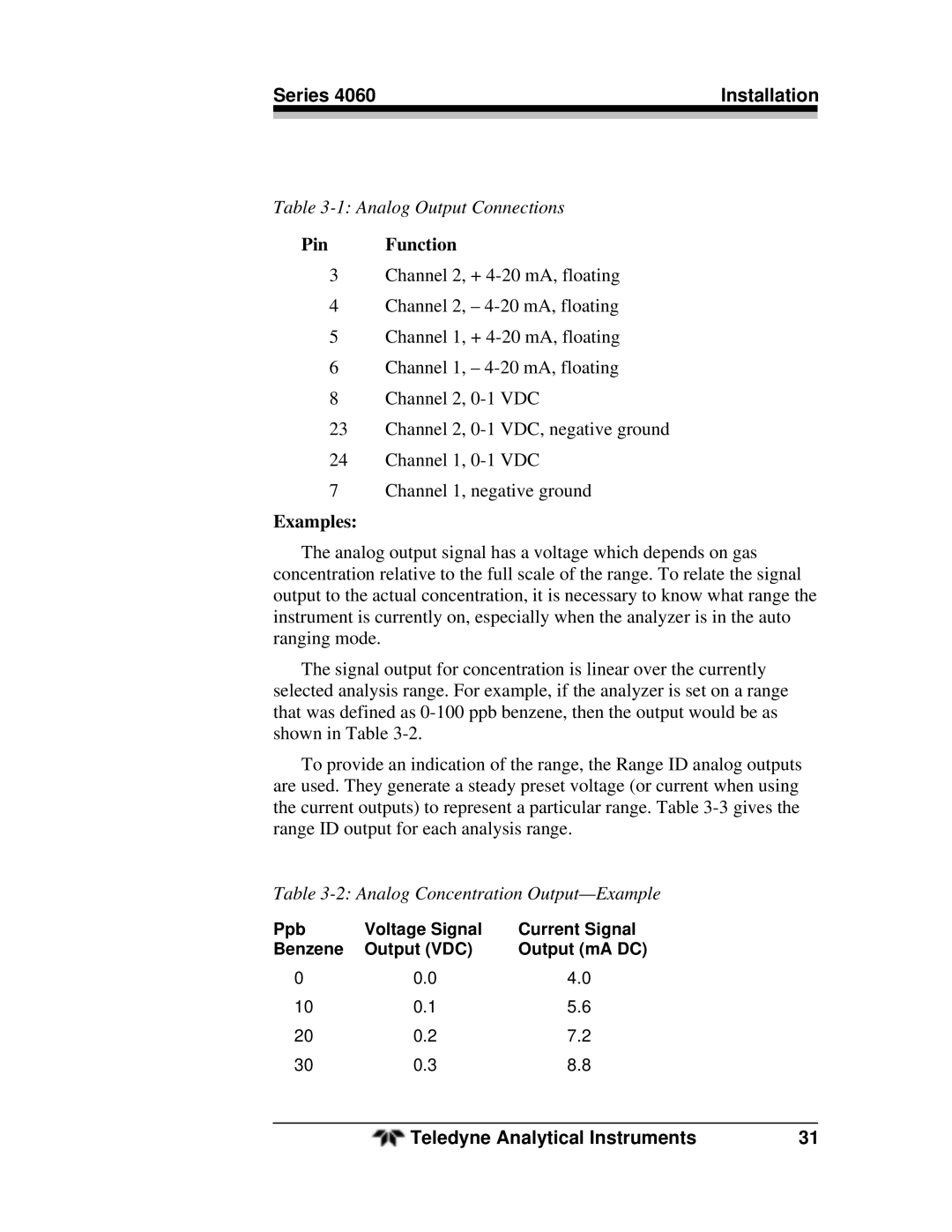Series 4060 | Installation | |
|
|
|
Table
Pin Function
3Channel 2, +
4Channel 2, –
5Channel 1, +
6Channel 1, –
8Channel 2,
23Channel 2,
24Channel 1,
7Channel 1, negative ground
Examples:
The analog output signal has a voltage which depends on gas concentration relative to the full scale of the range. To relate the signal output to the actual concentration, it is necessary to know what range the instrument is currently on, especially when the analyzer is in the auto ranging mode.
The signal output for concentration is linear over the currently selected analysis range. For example, if the analyzer is set on a range that was defined as
To provide an indication of the range, the Range ID analog outputs are used. They generate a steady preset voltage (or current when using the current outputs) to represent a particular range. Table
Table
Ppb | Voltage Signal | Current Signal |
Benzene | Output (VDC) | Output (mA DC) |
0 | 0.0 | 4.0 |
10 | 0.1 | 5.6 |
20 | 0.2 | 7.2 |
30 | 0.3 | 8.8 |
Teledyne Analytical Instruments | 31 |
